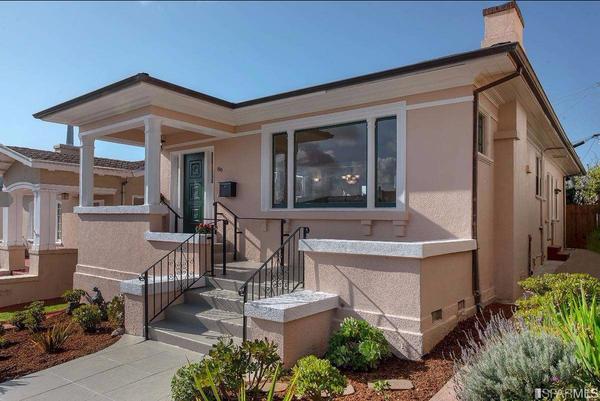9 Tips Most Home Buyers Don’t Consider
Here are the 9 most common things people don’t consider when buying a new home.
9. If you like the view, buy it
A home with a view is usually worth more than one without, but it’s not always safe to rely on. Oceanfront property will always be oceanfront property, but “ocean view” property, for example, can be a different story. Developers may come in a few years down the line and buy up residential property along the waterfront to make room for condos, which may obstruct what was once a beautiful ocean view.
Likewise, if you like the view of a property overlooking a meadow, pond, or forest, consider the possibility that it may be temporary. Unless you own the property between yourself and the scenery, don’t buy a home simply because it has a beautiful view.
8. Getting Pre-Qualified for a Mortgage Isn’t the Same as Pre-Approval
There’s a big difference between being pre-approved for a mortgage, and being pre-qualified. Being pre-qualified is a quick conversation that can be done over the phone, and doesn’t involve a deep look into your credit report, and is designed to give you a quick quote for what a person with your income might expect to receive in a mortgage.
As a buyer, you want to come into a bidding situation strong. An offer for a property by a buyer that is pre-approved is a sure-thing, but a pre-qualified buyer is virtually the same as a buyer who hasn’t been to see a mortgage advisor at all.
Getting pre-approved also give you a level of certainty that makes your home-buying experience easy. You know exactly how much you’re approved for, and your offer won’t be contingent on financing (which is THE #1 reason for an offer to fall through).

7. Bigger Isn’t Always Better
One of the oldest sayings in real estate is don’t buy the biggest house on the block. There’s a few reasons this still holds true today.
First is the value of your home is tied to the rest of the homes in your neighborhood. If your home is worth $800,000 and the rest of the homes in your neighborhood are worth $400,000, your returns are likely to be limited. The reason for this is that a person looking to buy and $800,000 house usually wants the rest of the homes in the area to be equally as nice, as being surrounded by beautiful homes drives up the value of the neighbourhood as a whole.
Secondly, buying the biggest house in a neighborhood will limit your options when it comes to reselling the house down the road. The biggest house on the block only appeals to a very narrow section of the market, and keeping your options open could be the difference between a successful sale and a stale listing.
I’m not saying there isn’t room for a big family or a multi-family dwelling in your neighbourhood, just that having 8 spare bedrooms might not be the blessing you think it is when it comes time to sell.
6. Watch Out for Sleeper Costs
A major difference between renting and buying a home is the sleeper costs. When budgeting for a home, the biggest mistake buyers make is assuming that mortgage payments are going to be your only major cost.
Don’t forget about the costs that creep up on you, like property taxes, utilities, and potential strata fees. Start putting aside a little money for expenses like a new hot water heater or roof repair now, because the unexpected costs are the hardest to deal with.

5. Don’t Try to Time the Market
Trying to anticipate the market is impossible. The real estate market is cyclical – home values rise for a few years and then fall for a while, then rise again. Don’t spend years waiting for the right time – on average, home values have been rising for decades.
The best time to buy is when you find the perfect house and you can afford to do so. Waiting for that “golden opportunity” will probably cause you to miss out. This is especially important for first-time home buyers. The important thing is that you get your foot in the door, and start building up equity now.
4. Give Your Home a Close Inspection
Just like you wouldn’t buy a car without making sure it works properly, thoroughly check the house before you make an offer. Hire a home inspector. While hiring a home inspector is an additional expense, this one is worth the hassle.
A good home inspector will have seen hundreds of homes like yours, and will be able to point out problems normal people would miss. A home inspector is completely on your side, and their sole purpose is to save you money. Use the information they give you to decide whether that “fixer-upper” is the fantastic investment the seller told you it would be, or a pile of junk that is going to cause you headaches and thousands of dollars down the road.
3. The Secret Science of Bidding
There’s an art to bidding, and it doesn’t always start with the lowest possible offer. Your opening bid should be based on two things: how much you can afford (you don’t want to win a bidding war on a hot property only to have the deal fall apart because of financing), and what you believe the property is worth.
Your opening offer should be something that is reasonable to the seller and gives you a place to start. Most inexperienced negotiators think they need to start their bid low in order to end up at a reasonable compromise. Best practice in negotiation is to look at what the market is doing right now. Look at what similar homes in the area are selling for, and try to get a feel for what homes in the area are worth per square foot.
Making an offer on a per-square-foot basis is a great way to make sure your offer is in the right ballpark, but to form an offer that factors in property upgrades and unique features make sure to speak with your buying agent.
Sellers respect an offer that is carefully considered, especially when it’s an unusual number. A round number sounds like every other offer the seller has received, but choosing an irregular number makes it seem like your offer was carefully crafted.

2. Investigate the neighborhood
When looking for a home remember that you’re not just buying a house, you’re buying the whole neighborhood. Before you make an offer, visit the neighborhood in the morning, afternoon, and at night. Drive your usual commute during rush hour to see if you can live with the traffic in the area, and visit the area in the evening to see if you’d feel safe walking around at night. Find out where the nearest grocery stores and schools are.
Even if you don’t have kids, choosing a home near a school can be a great investment. Buying a home in a better school district can boost the value of your home by as much as 20%.

1. Think long term and resale
Especially if this is your first home purchase, consider how long you intend to stay in this house. Most people only stay in their first home an average of 7 years. Remember to take into account the buying preferences of your target audience. Is the home you’re looking at in a quiet, safe neighborhood? Is it located near a school, or in a mostly elderly neighborhood? If you’re planning to sell whatever property you get in 7-8 years to another couple looking for a starter home, perhaps buying a home in a complex filled with retirees will be a more difficult sell down the road.
Also consider whether the property you’re looking into has room for a potential addition down the road. Does the zoning allow for the addition of a garden suite or detached suite?
For more home buying tips and giveaways follow Victoria Homes on Facebook, and for all your real estate and home service needs, visit VictoriaHomes.com!
Categories
Recent Posts











